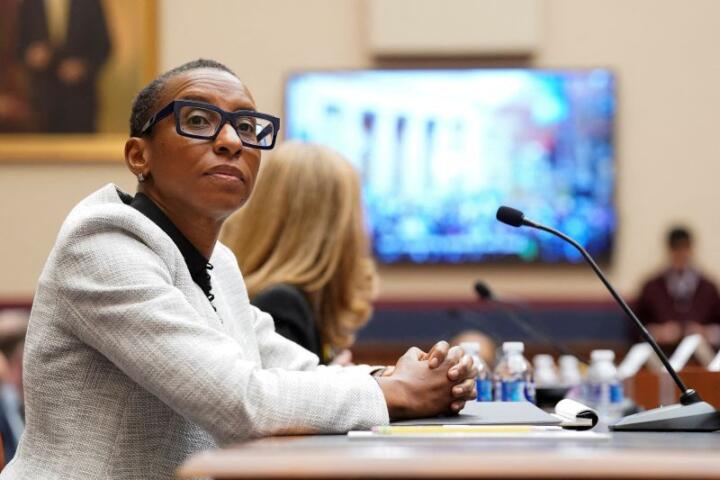In a shocking turn of events, Harvard President Claudine Gay has tendered her resignation amidst a maelstrom of controversy and scandalous issues that have rocked the esteemed university. This decision comes on the heels of renewed scrutiny into her academic work and a donor revolt over Harvard’s handling of antisemitism, further exacerbating the challenges faced by the institution.
President Gay personally announced her resignation in a heartfelt letter addressed to the University community on Tuesday. Citing consultations with members of the Corporation, she expressed that stepping down is in the best interests of Harvard, allowing the community to confront the current moment of extraordinary challenge with a collective focus on the institution rather than any individual.
While President Gay did not specify the exact date of her formal resignation, she described the decision as “difficult beyond words.” The announcement follows recent questions regarding her academic integrity and a donor backlash over the university’s approach to antisemitism.

In her own words, President Gay acknowledged the distress caused by doubts cast on her commitment to combating hate and upholding scholarly rigor, both of which she considers fundamental values. She also lamented being subjected to personal attacks and threats fueled by racial animus.
President Gay’s resignation comes a mere six months into her tenure, making her the first Black president in Harvard’s nearly 400-year history and the second woman to hold the position. Despite the brevity of her presidency, Gay expressed gratitude for the opportunity to serve a global community and reaffirmed Harvard’s commitment to welcoming individuals of talent and promise from diverse backgrounds.
Reflecting on her brief presidency, President Gay expressed hope that it would be remembered as a moment of reawakening to the importance of finding common humanity and not allowing discord and vituperation to undermine the vital process of education.
The scrutiny into President Gay’s presidency escalated when instances of inadequate citation in her political science work were found by the Harvard Corporation. Although these instances did not constitute a violation of research standards, additional instances of “duplicative language without appropriate attribution” were identified on December 20. Simultaneously, a House committee expanded its investigation to include Harvard’s handling of plagiarism allegations against Gay.
President Gay faced further criticism during a December 5 hearing on antisemitism, where she and other university presidents were criticized for evasive responses. Video clips of these exchanges circulated widely, leading to widespread outrage. Gay later apologized, condemning calls for violence or genocide.
Representative Elise Stefanik, a Harvard alum, labeled President Gay’s resignation as “long overdue,” citing what she described as “morally bankrupt answers” given during congressional testimony.
The pressure on Harvard extended beyond criticism to substantial donor backlash, with financial support diminishing from influential figures. Notable donors, including Seth Klarman and Mitt Romney, expressed concerns about Harvard’s handling of the safety of Jewish students during pro-Palestinian demonstrations. The potential financial blow to Harvard was underscored by the withdrawal of billions of dollars in potential contributions, with donors like Bill Ackman actively demanding President Gay’s resignation and expressing their discontent online.
In the wake of President Gay’s resignation, Alan M. Garber, currently holding the positions of provost and chief academic officer at Harvard, will assume the role of interim president until a suitable successor is identified. The Harvard Corporation, in its announcement on Tuesday, stated that the search for a new president would “commence in due course,” refraining from providing a specific timeline for the process.
As the Harvard community grapples with the aftermath of President Gay’s resignation, the broader implications of this event on the university’s reputation, financial stability, and commitment to diversity and academic excellence remain uncertain. The quest for a new leader will undoubtedly be closely watched by stakeholders both within and beyond the hallowed halls of Harvard.
Support InfoStride News' Credible Journalism: Only credible journalism can guarantee a fair, accountable and transparent society, including democracy and government. It involves a lot of efforts and money. We need your support. Click here to Donate
